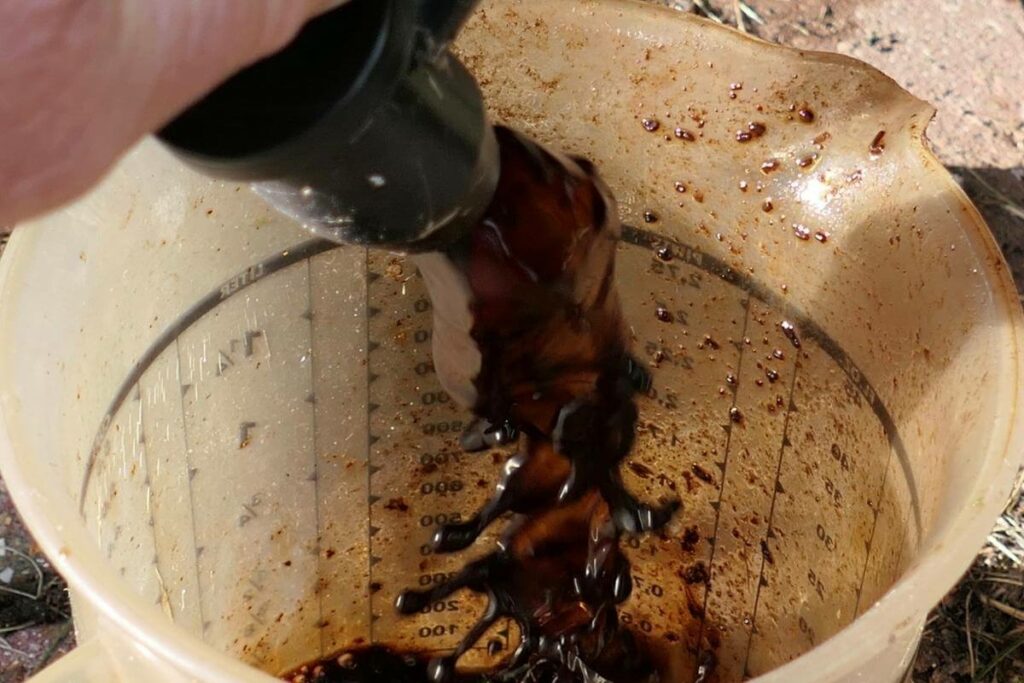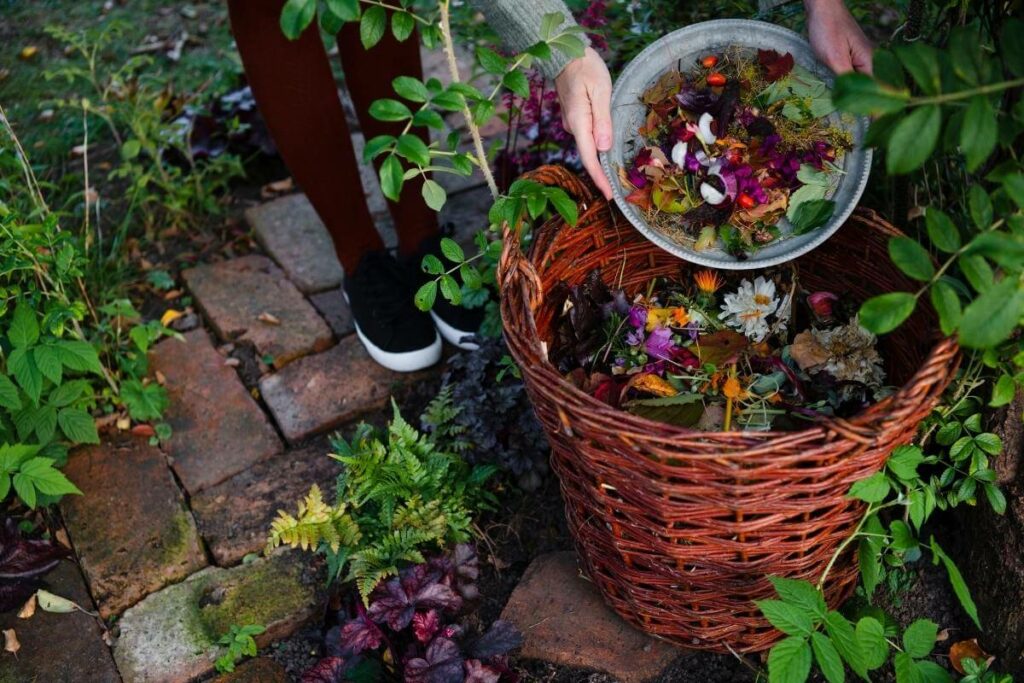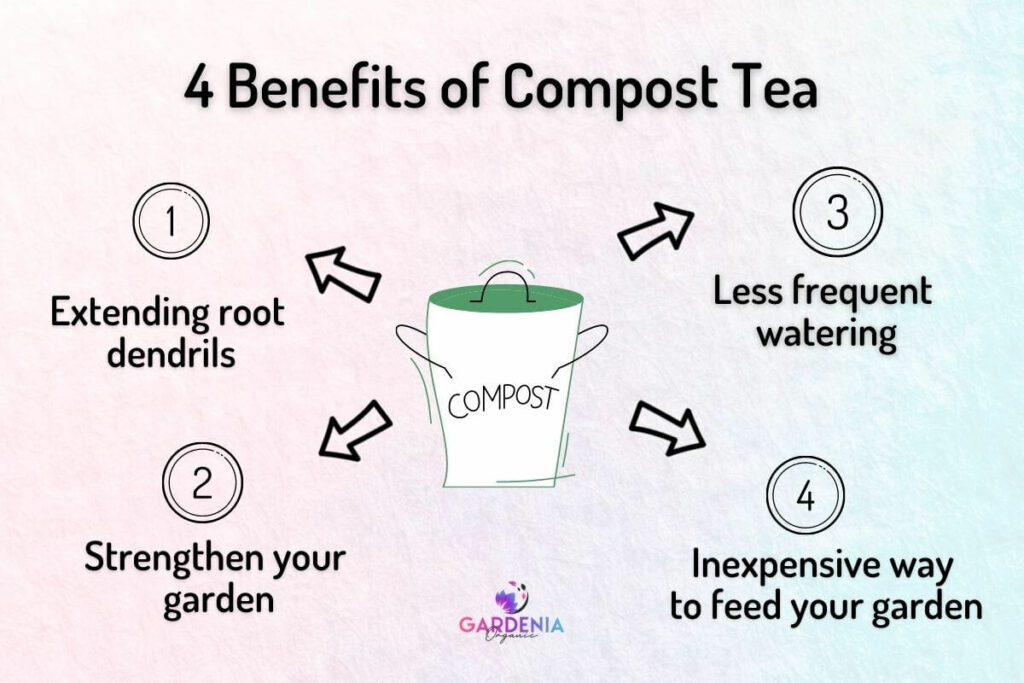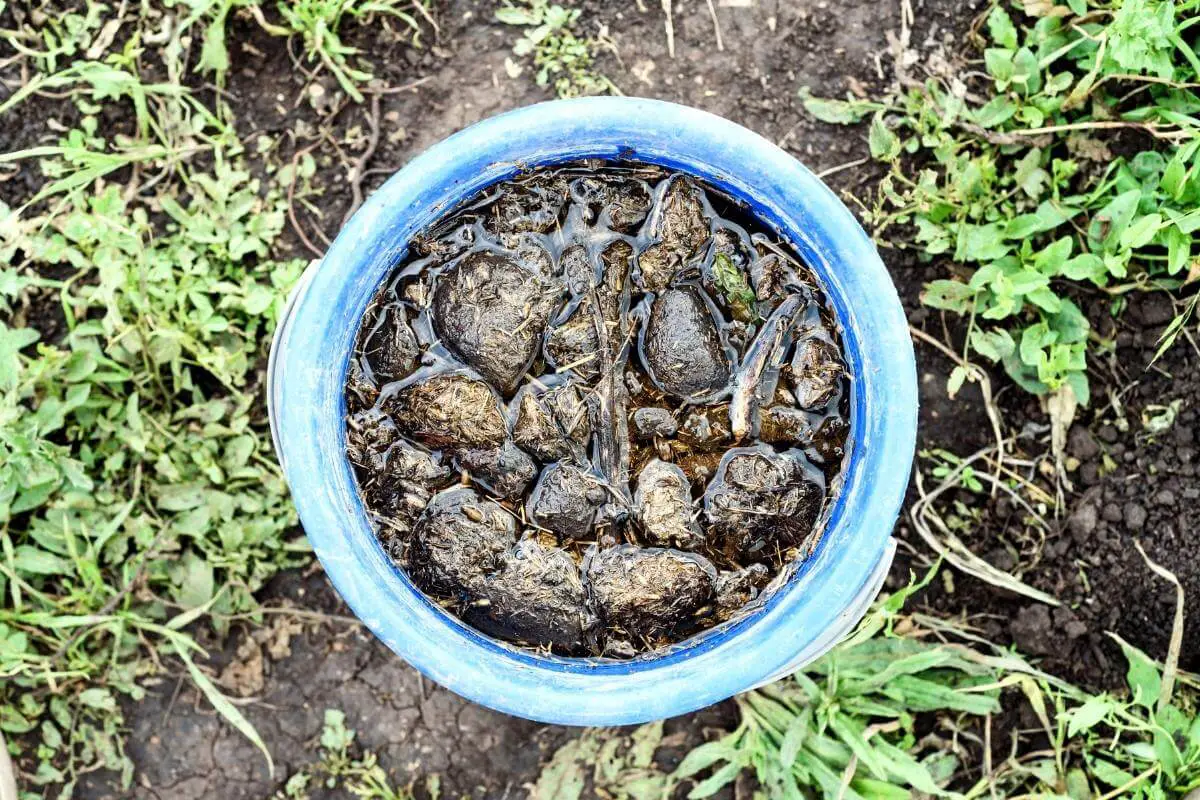Compost tea is a nutrient rich, beneficial food for your garden plants with materials right from your own kitchen, but how often should you feed your plants compost tea?
Newly planted beds will benefit from twice-a-week feedings while established plants can only require weekly, biweekly, or monthly feedings depending on the plant’s nutrient requirements.Some plants do not fare well if supplied with too many nutrients such as nitrogen so these would most likely do better with biweekly or monthly feedings.
On the other hand, other garden species need lots of nutrients and will thrive with weekly applications of compost tea.
In this article, we will provide you with all you need to know about compost tea, how to make it, how to apply, when to apply it and much more.
Your garden will thrive with this easy to make, nutrient rich food that plants can’t get enough of.
How Do You Make Compost Tea?
Compost tea is made from two simple ingredients: your kitchen food waste and water.
Yes, it is that simple.
Place the compost in a bag that will allow the nutrients to dissolve into the water. Most compost tea bags are made from silk, paper, or muslin. Allow the bag of compost to steep for three to seven days before use.
To capitalize of even more nutrients for your garden plants, make sure to aerate your compost tea by adding a length of tubing which will allow oxygen to be in constant supply and encourage healthy microbes to inhabit your compost tea.
You Might Try: There are also compost tea brewing kits available for purchase for a variety of manufacturers that may also aid the process.
How Do You Apply Compost Tea?

Once your compost tea has been steeped and is rich in nutrients, place the tea in a spray bottle.
Apply the tea by spraying the foliage of the plants so that the leaves of your garden plants can absorb the nutrients. You can also spray the roots and soil at the base of your plants for maximum absorption.
Another way to apply compost tea directly to the soil at the base of the plant is with drip irrigation. In this instance, it is best to dilute the compost tea so that your garden plants are not overfed.
When Should You Apply Compost Tea?
As with most manual waterings, compost tea should be applied in the morning before the sun climbs too high.
This will prevent the tea from drying out and allow the plants to fully absorb the nutrients before the day gets too hot.
Alternatively, compost tea can also be applied in the evening as long as the temperature has dropped below eighty degrees to avoid the issues mentioned above.
Expert Advice: It is also best to apply compost tea on calm days because too much wind can take away the nutrients before the plant has a chance to absorb them.
How Long Does Compost Tea Last?

Compost tea can be kept for up to four to six days if stored in an opaque, airtight container.
This will discourage any further decomposition by limiting oxygen and light that can further breakdown the nutrients in your compost tea.
If you want your compost tea to last longer, it should be kept in a larger container and equipped with an aquarium oxygen pump connected to an air stone. The continuous aeration will allow microbes to stay alive and slow the rate of decomposition.
Don’t Risk It: If you notice that your compost tea starts to smell rancid, it is probably going bad and should be thrown away rather than given to plants to avoid getting your plants sick.
How Much Compost Tea Should I Feed My Plants?
It can be hard to tell how much is too much when it comes to compost tea application but a good rule of thumb to follow is spraying your plant’s leaves until the droplets of liquid run off.
If you’re applying directly to the soil through a watering can, instead of drip irrigation, most plants benefit from approximately half a gallon for every one thousand square feet of soil.
It’s best to double check your specific plants nutrient needs, however, because some plants can be easily overfed and suffer from stunted growth or will not flower or fruit if too much nutrients are applied.
What Are the Benefits of Compost Tea?

Compost teas supply a lot of the same health benefits to your plants that compost does – although in a watered down version.
Here are the main benefits:
- It provides your garden plants with readily available nutrients needed for growth, increases the depths of your plants’ ability to root by extending root tendrils, and helps build your plants’ immune systems to fight off rot and diseases.
- Compost tea has the added benefit of improving the water retention of your garden’s soil, allowing the need the need for watering to become less frequent.
- It is also a very inexpensive way to feed your garden – all you need is water and the kitchen trash from produce, coffee grounds, and egg shells you were going to throw away anyway.
- If used in conjunction with applying seasonal feedings of compost to the soil, compost tea can strengthen your garden’s ability to produce beautiful flowers and bountiful fruits for harvest.
Time to Start Brewing Some Compost Tea
Compost tea is a natural, effective, and inexpensive way to feed your garden plants and ensure that they grow and produce to the best of their abilities.
Applications only need to occur on a weekly and sometimes biweekly or monthly basis so there’s no need to make tea every day.
Final Words
A batch of compost tea is ready for use after a few days to a week and can be kept, if stored properly, for four to six days.
A simple thorough spray of the foliage or soil, drip irrigation, or drench watering can all provide the readily available nutrients compost tea contains to make your plants the healthiest they’ve ever been.
